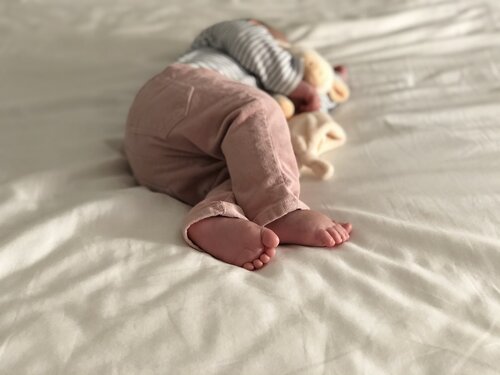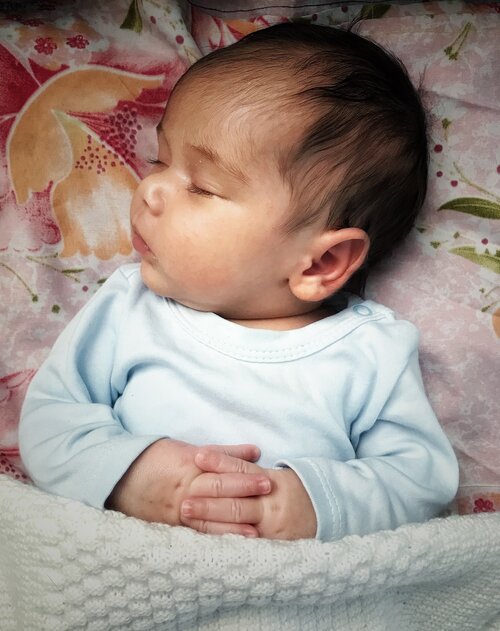Sleep. It’s the one thing almost all parents want, but seemingly never get! A fact that is all the more true for parents of infants. With most infants needing to feed every two to three hours from the time they are born, parents slowly learn to adjust their clocks to a minimal-sleep schedule. They also learn to do whatever it takes to soothe their baby.
As the child gets older, however, parents of newborns begin to burn out, and they begin to wonder why their baby isn’t sleeping yet! Here are the top three reasons parents need to look into if a baby that is 6-months or older is still not sleeping through the night.
1) You’re the crutch

There’s a good chance that your baby isn’t sleeping well because you’ve taught them to rely on you to sleep. It could be that you nurse them to sleep, rock them to sleep, or even just hold them until they sleep, and so they learn that sleep happens when you are around. Which, of course, means that when you aren’t around, sleep eludes them.
In this situation, establishing a sleep routine, sleep cues, and sleep-associated comfort objects (ex. swaddle, pacifier, or favourite toy) that do not involve you is key to getting your child to make the transition to fall asleep without you, and fall back asleep without waking you!
Figure out what it is helps your baby sleep that doesn’t require your presence, or bring in an object as you continue your current sleep system (rocking, nursing, etc.). After a few nights your baby will begin to associate that object with falling asleep, and soon they may sleep as soon as they have it.
If you want to remove nursing as a crutch, be sure to discuss it with your pediatrician to ensure that your baby is getting enough nutrients and food throughout the day.
2) They’re too tired
It’s a funny thing to realise, but sleep makes sleep. If a child doesn’t sleep enough or well enough during the day, they can be too tired and cranky to fall asleep at night. The more your baby sleeps during the day, the easier it will be for them to fall asleep at night and sleep well. Now, we’re not encouraging babies to sleep four or five hours a day. Just two to three naps will do. As they get older, this rule continues.
Toddlers will need about one or two naps a day, and most kids will take a nap in the afternoon until five or six years of age. Encouraging children to nap is good for them. Human growth hormone is released when asleep, which means napping helps them grow!
3) No routine

Just like having a comfort object, having a routine is one of the best ways to help your baby go to sleep and stay asleep. Each step of your routine should help wind them down and relax. Doing it at the same time every night also helps teach them what time of day it is and what they’re supposed to do.
Most bedtime routines involve a bath, some quiet time with a toy or story, one last feed, and then being laid down in the crib. The sooner you begin (many recommend starting at 4 months) the faster your child will learn how to sleep through the night and without you!
There are other reasons why babies may have a difficult time falling asleep. Snoring, sleep apnea, overstimulation from screens, and being too young are just a few of the reasons why they may have a hard time sleeping and staying asleep. Consider your baby’s usual daytime activities, how they are when they are actually sleeping, and what surrounds them when they’re trying to sleep to best determine the cause of their nocturnality.

Leave a Reply